Israel-Hamas War: What happened on day 156?
Houthi leader promises more attacks on Red Sea ships • Hamas blames Israel for lack of hostage deal before Ramadan • US officials pressure Lebanon to stop funds to Hezbollah
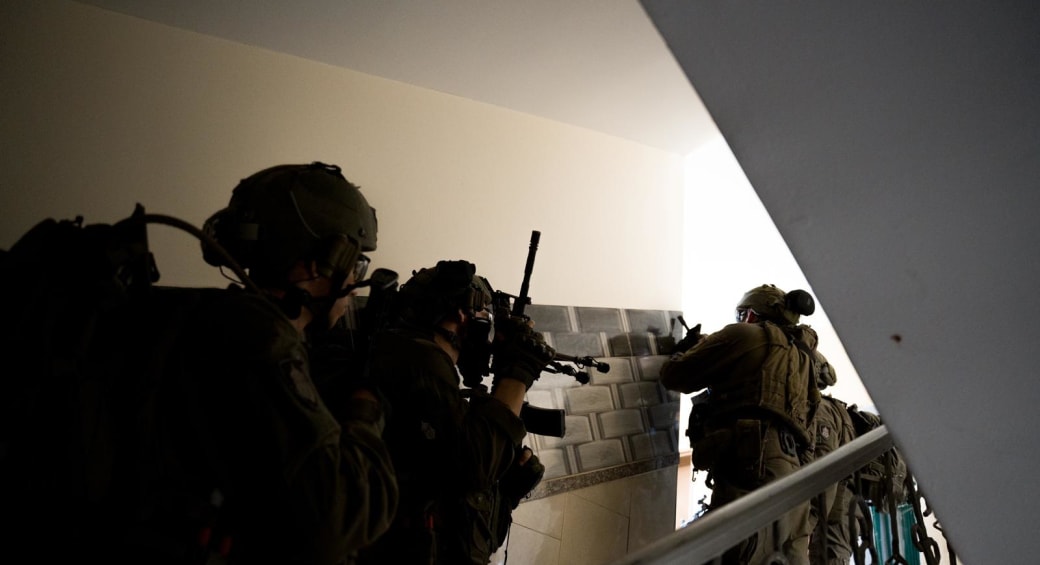

Hamas high command number three possibly killed by IDF strike
Issa was reportedly hiding in Nusirat, in central Gaza, at the time of the strike, and it is unclear whether the Hamas leader was killed in the event.

Marwan Issa, deputy to Mohammed Deif and number three of Hamas's high command, was targeted by an Israeli airstrike on Saturday.
The IDF cleared the event for publishing on Monday morning.
Issa was reportedly hiding in Nusirat, in central Gaza, at the time of the strike, and it is unclear whether the Hamas leader was killed in the event.
Maariv, citing Palestinian sources, reported that Hamas was concerned about the status of the terror chief.
15 terrorists killed in central Gaza
Separately, in central Gaza, the IDF eliminated 15 terrorists through close-quarters engagements, sniper fire, and airstrikes, the IDF stated on Monday.
In one encounter, Israeli troops identified a terror cell carrying what were suspected to be weapons out of a Hamas military compound in the area.
After observing the subsequent activities of the cell, the terror cell was eliminated by a strike from an IDF aircraft, the military noted.
The IDF similarly eliminated another terror cell that was observing the Israeli troops in the area.
The Israeli forces also operated in the area of Hamad in southern Gaza, where special forces units conducted raids on a number of civilian residences that were being used for terror purposes, the IDF reported.
During these raids, the IDF troops arrested Hamas terrorists and found weapons, ammunition, and other military ordnance. In one operation, an anti-tank missile was launched at the soldiers, however not injuries among IDF personnel were reported as a consequence.
This is a developing story.
Go to the full article >>IDF Comptroller: Many complaints went down over course of the war
The report notes shortages of weapons, ammunition, food, and bomb shelters but spins positively.
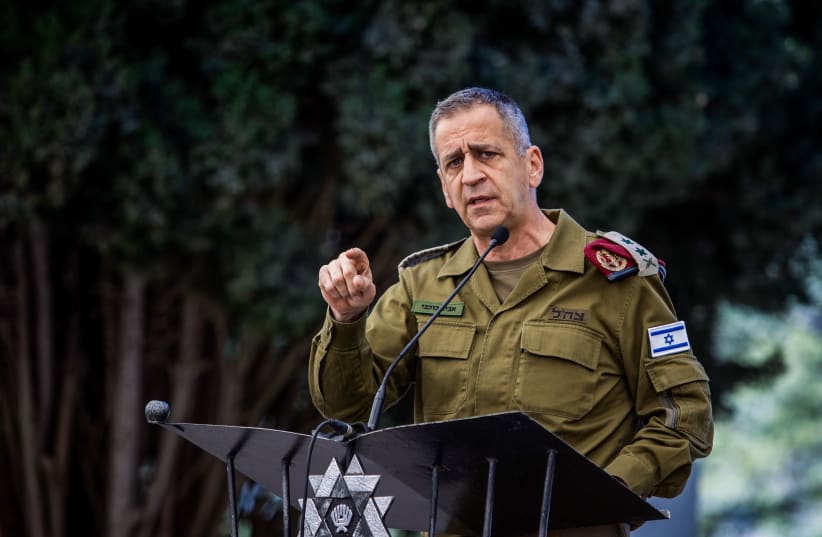
The IDF Comptroller report of Brig. Gen. (res.) Racheli Tevet Wiesel was released on Monday morning with an unexpected spin, saying that many categories of complaints went down as the current war progressed.
According to the report, the complaints reported in the media about reservists lacking sufficient protective vests, ammunition, food, water, bomb shelters, and other items were all received by the IDF comptroller.
Likewise, there was a high number of complaints about insufficient mental health assistance for soldiers.
However, the comptroller said that overall complaints for mental health went down over the course of the war as the IDF massively increased the number of professionals involved.
Many supply shortage issues were solved
Further, the comptroller said she helped intervene and solve many of the reservists’ supply shortages issues.
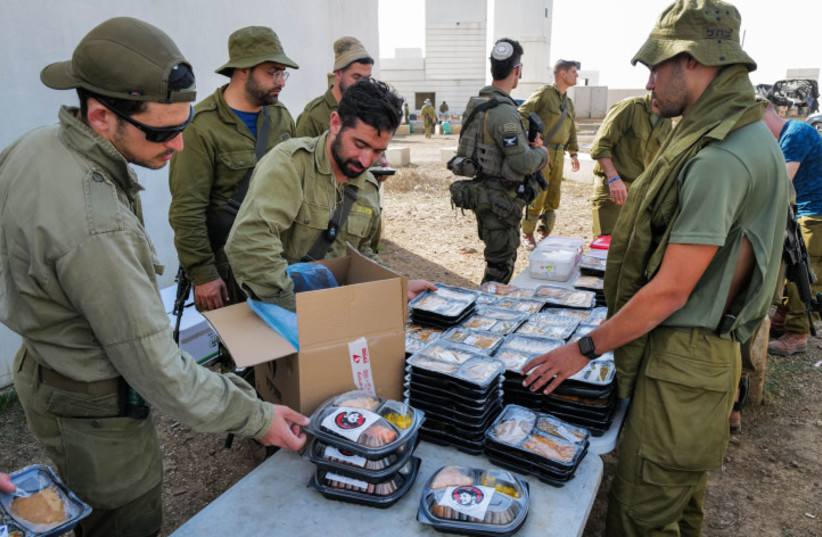
Generally, the report said that the 5,749 complaints filed in 2023 represented a 5% decrease compared to 2022, with 54% of them being found to be valid.
However, if the number of mandatory service soldier complaints dropped by 22% since 2022, the number of reservist complaints at 712, was a jump of 30% compared to last year.
Specifically, reservist complaints went up by 265% from October 7 to December 21 of 2023 compared to the same period in 2022.
Individual stories in the report relate to soldiers not having bomb shelters when attacked by rockets or being told by commanders that they had to remain at their posts rather than go to bomb shelters.
Ultimately, the comptroller and the relevant commanders clarified to mid-level commanders that this violated IDF regulations and that soldiers were directed to evacuate to bomb shelters when under rocket attack.
It is still unclear how quickly and efficiently the missing equipment needs of reservists were filled, though top IDF sources previously told The Jerusalem Post that shortages were solved speedily for frontline combat fighters, and more slowly for soldiers in rear defense guard positions.
Go to the full article >>'It cannot be that the world remains indifferent': FM Katz, hostage families to speak at UN
"Together with representatives of the families, we will discuss the special report of the UN mission, which points out the terrible things Hamas has done," said FM Israel Katz.
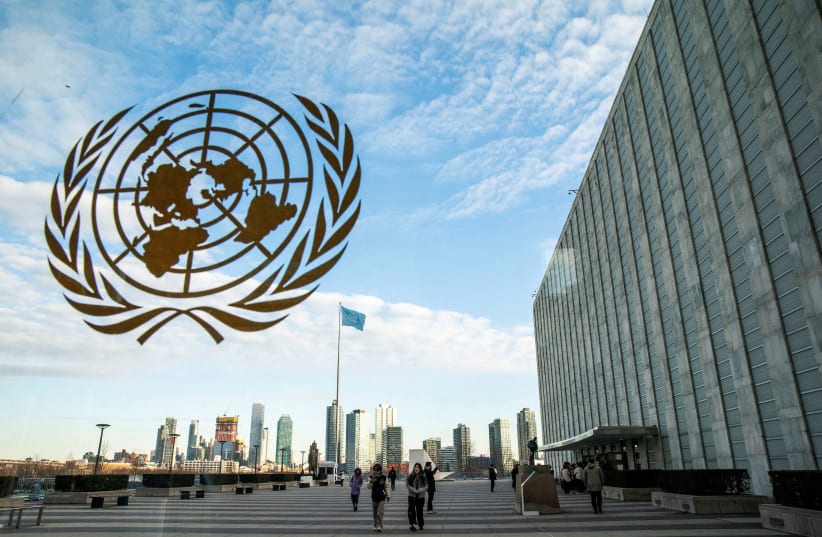
A delegation of families of the kidnapped departed on Sunday night for New York to participate in a discussion of the UN Security Council regarding the report on the sexual crimes of Hamas terrorists on October 7.
Additionally, the families will hold a meeting with the author of the report, Pramila Patten, and the UN Special Representative of the Secretary-General on Sexual Violence in Conflict. They will also participate in a special reception with the mayor of New York City, Eric Adams.
"The delegation is unprecedented. It is important that we are there now as families of the kidnapped, and we will do everything to release them. Each of the kidnapped and each of the captives still experiences what is described in the report. We are still on October 7, and we must put an end to it," said Yardan Gonen, the sister of the kidnapped Romi Gonen.
"On the morning of the holiday, terrorists entered our homes, kidnapped the women, raped them, and committed other terrible acts - which must be internationally recognized. It cannot be that such things happen, and the world remains indifferent,” said Eli Louk, the father of the late Shani Louk. “The idea of the delegation is a very blessed one. I hope that international awareness of everything that happened to the people of Israel will lead to the release of all the kidnapped as soon as possible."
Foreign Minister Israel Katz accompanies the families of the hostages on the visit.
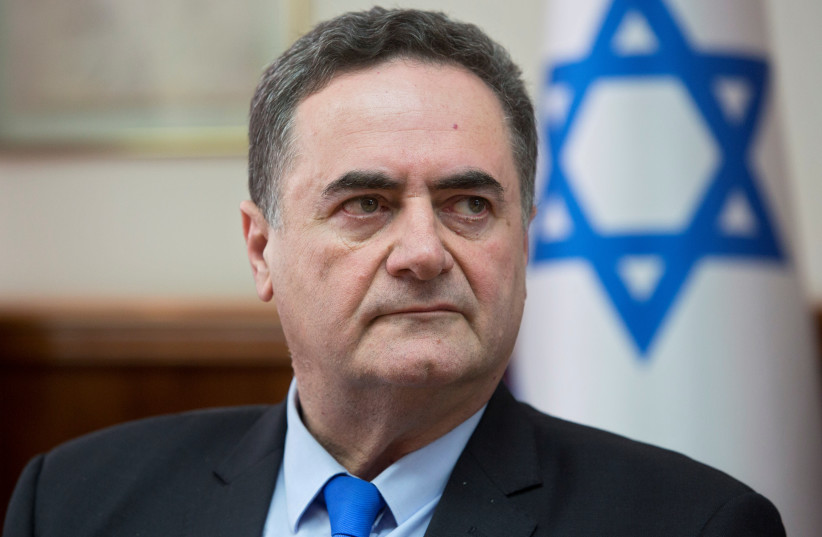
UNSC emergency session
"Tonight, we are going to a special emergency session of the UN Security Council to place the issue of the return of the hostages at the top of the agenda,” Katz said. “Together with representatives of the families, we will discuss the special report of the UN mission, which points out the terrible things Hamas has done, and we will act to recognize Hamas as a terrorist organization and to make a clear decision on the return of all the hostages."
"The report is important not only because of the recognition of its historical truths, and not only because of the importance of knowing what really happened here on October 7, but because there are ongoing crimes there,” added Prof. Shelly Aviv Yaini. “There are still sexual assaults in captivity, and we need to bring them all back, and for that, we all know that this country cannot stand without the return of the kidnapped and captives."
Go to the full article >>Netanyahu slams Biden, calling accusation that he’s harming Israel 'false'
Israelis support IDF action in Gaza to destroy Hamas and they do not support the return of the PA to Gaza, Netanyahu said.
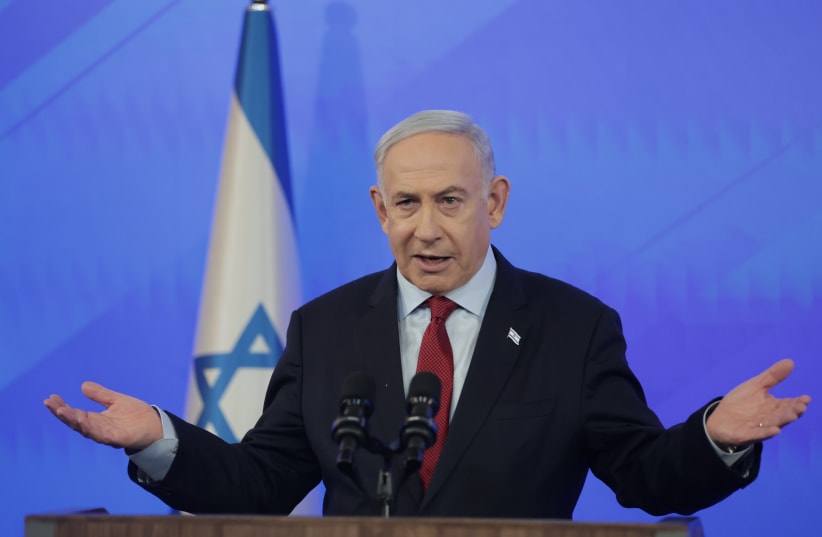
US President Joe Biden’s attempts to separate the Israeli leadership from its people are false, Prime Minister Benjamin Netanyahu said Sunday. He was responding to the US administration’s heightened criticism of the IDF’s war effort.
“These are not my private policies only; they are policies supported by the overwhelming majority of the Israelis,” Netanyahu told Politico, a Washington-based news organization.
On Saturday, Biden said Netanyahu was undermining the values on which Israel was founded and is harming the country with his handling of the Gaza war.
“He [Netanyahu] has a right to defend Israel, a right to continue to pursue Hamas, but he must, he must, he must pay more attention to the innocent lives being lost as a consequence of the actions taken,” he told MSNBC.
“He is hurting Israel more than helping Israel... it is contrary to what Israel stands for, and I think it’s a big mistake,” Biden said.
Netanyahu told Politico: If Biden meant “that I am pursuing private policies against the wish of the majority of Israelis, and that this is hurting the interests of Israel, then he is wrong on both counts.”
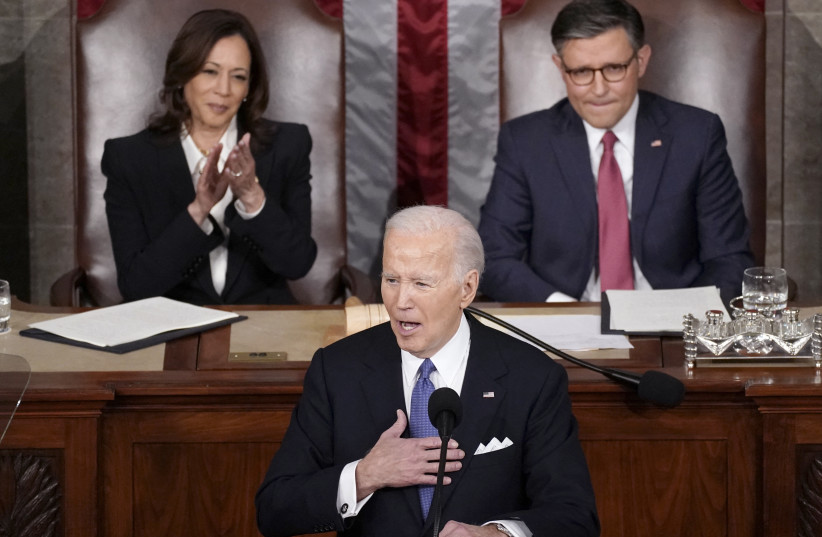
PA cannot take control of Gaza
Israelis support IDF action in Gaza to destroy Hamas, and they do not want to see a Palestinian Authority in Gaza that finances terrorism, nor do they back a Palestinian state “rammed down their throats,” he said.
The majority of Israelis understand that they are under threat of another October 7-style attack unless Hamas is defeated in Gaza, Netanyahu said.
A second such attack would be “bad for Israel, bad for the Palestinians, bad for the future of peace in the Middle East,” he said. “So, the attempt to say that my policies are my private policies that are not supported by most Israelis is false.”
“The vast majority are united as never before, and they understand what’s good for Israel,” Netanyahu said. “They understand what’s important for Israel, and I think they’re right.”
The two men exchanged barbs amid growing tensions between Israel and the US over Israel’s conduct of its military campaign to destroy Hamas in Gaza. The US supports the operation in principle but has otherwise opposed elements of it.
The US has been concerned, in particular, by the high fatality count, with Hamas asserting that more than 31,000 Palestinians have been killed since the start of the war. Israel has said more than 11,000 of the fatalities have been combatants.
The US has also argued that Israel has not done enough to contain the humanitarian disaster that accompanied its military campaign, during which it has taken out roads, infrastructure, and the governance system, making it difficult, and in some cases impossible, to distribute aid.
During a private comment Biden made last Thursday, which was caught on microphone, he said he needed a “come to Jesus meeting” with Netanyahu on the issue of humanitarian aid for Gaza.
When pressed by MSNBC about what he meant by that comment, Biden said it was a euphemism for a “serious meeting.”
“I have known Bibi for 50 years, and he knew what I meant by it,” he said.
Biden was careful to stress to MSNBC that irrespective of his thoughts on Netanyahu, he supported Israel, particularly concerning defensive weapons.
“I am never going to leave Israel,” Biden said.
“The defense of Israel is still critical, so there is no redline where I am going to cut off all weapons so they do not have the Iron Dome to protect them,” Biden added.
Lines that Israel should not cross
Within that framework, there are still redlines Israel should not cross, such as a military operation in Rafah, he said.
Biden has stressed in the past that the US would only support such an operation if Israel presented a plan to protect the more than 1.3 million Palestinians located in the area of Rafah, many of whom fled there to escape Israeli aerial bombings in the northern part of the enclave.
“You cannot have 30,000 more Palestinian dead as a consequence of going after [Hamas],” he said. “There are other ways to... get to Hamas.”
Biden recalled how when he visited Israel last October, he had sat with the country’s war cabinet and warned it not to make the same mistakes the US had made when it entered Iraq and Afghanistan in the aftermath of the September 11 terrorist attacks on the Twin Towers in New York in 2001.
“The first time I went over, I sat with the war cabinet,” Biden said. “I said, ‘Do not make the mistake America made,’… we should not have gone into the whole thing in Iraq and Afghanistan. It was not necessary. It was not necessary. It caused more problems than it cured.”
When asked by MSNBC if he would consider a second trip to Israel that would include an address to the Knesset, he said, “Yes,” but then added, “I would rather not discuss more.” When pressed again as to the significance of his remarks, he said, “It doesn’t mean anything.”
Biden also spoke of US efforts to increase humanitarian assistance to Gaza.
US increases humanitarian aid to Gaza
During his annual State of the Union address to Congress on Thursday night, Biden said the US military was planning to build a floating pier off of the Gaza coast for cargo ships, given that the enclave lacked a port large enough for such vessels to dock.
Biden told MSNBC the US was also airdropping supplies over Gaza and was pressuring Israel to open up another crossing into the northern part of the enclave.
“This is a desperate situation,” he said. “Food, medicine [are] badly needed, and it’s needed now.”
Biden spoke with MSNBC in advance of a campaign trip to the swing state of Michigan this week, which has a strong pro-Palestinian population.
Biden pushed back at MSNBC’s description of pro-Palestinian voters as ones who believe that Israel is committing genocide in Gaza.
“What they said was that they are upset, and I don’t blame them for being upset,” he said. “There are families there, there are people who are dying, and they want something done about it.
“They are saying, “Joe, do something, do something,’ but the idea that they will think it is genocide is a different situation. I can fully understand, can’t you? You have a family member or come from a family that is still isolated there and maybe be victimized… and that is why I am doing everything I can to try and stop it,” Biden said.
The situation in Gaza is not comparable to the Allies’ military operations in World War II, he said.
“After what happened in World War II and the carpet bombing that took place, we changed the rules of the game and what constitutes legitimate rules of war, and that should be abided by,” he said, insinuating that the IDF had violated international humanitarian law in Gaza.
Efforts remained underway for a deal that would free hostages in exchange for a six-week pause to the war and the release of Palestinian security prisoners and terrorists held in Israeli jails, Biden said.
CIA Director William Burns was in the region “right this minute, still talking about it,” he said.
Hamas “would like a total ceasefire across the board because then they have a better chance to survive and then rebuild,” he added.
“I want to see a ceasefire – with a major, major exchange of prisoners – for six weeks,” Biden said. “We are going into Ramadan. There should be nothing happening, and we should build off of that ceasefire.”
The focus now should be on what comes after the war, which includes a normalization process between Israel and the Arab countries and then moves to rebuild the region, he said.
Biden was referring to the Saudi deal the US is pushing, which would also include a diplomatic path to Palestinian statehood.
“That is the focus: what comes after Gaza, what is next,” he said. “It’s a tough decision, but here is a lot that can be done.”
Go to the full article >>US official demands Lebanese Treasury halt funneling funds to Hezbollah, Hamas
The official added that the groups require these funds so they might pay their fighters and continue to operate to achieve their aims.
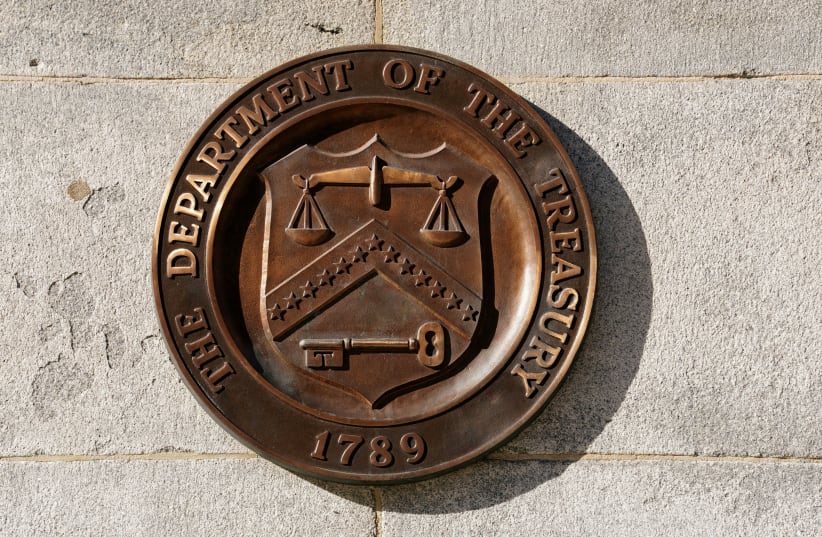
An anonymous Lebanese Treasury official told the Saudi-affiliated media source, Al-Arabia, on Sunday that Deputy Assistant Secretary of the Treasury for Asia and the Middle East in the Office of Terrorist Financing and Financial Crimes, Jesse Baker, demanded Lebanese officials stop and prevent the funneling of financial aid from Iran to Hezbollah and Hamas, on Thursday.
The Treasury official also said that Baker informed them of "specific concerns" about "the movement of Hamas funds through Lebanon" as well as funds that relate to Hezbollah. According to the official, Baker also called for "proactive measures" to prevent this from happening in the future.
The official added that the groups require these funds so they might pay their fighters and continue to operate to achieve their aims.
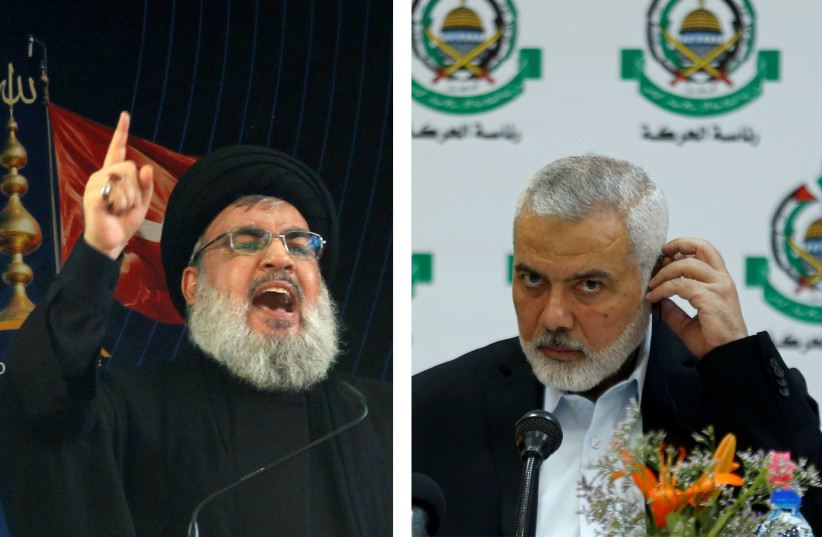
Compliance with counterterrorism financial reforms
He expressed that showing compliance with global anti-money-laundering and counterterrorism financing standards is vital for Lebanon, and is important when trying to entice international investments.
He further informed the Saudi media outlet that Baker requested that Lebanon act harshly towards a large sector of illegal financial service companies that have been flourishing due to the collapse of the country's formal bank system and provide financial solutions to embargoed organizations.
Hamas spokesperson in Lebanon said that he "has no information" on the matter, while the Lebanese main bank's spokesperson defined the meeting as "very positive."
Go to the full article >>Houthi leader promises 'more surprises' for US, Israeli ships
Many observers say that the Houthis are exploiting pro-Palestinian sentiment among Yemenis to continue the attacks.
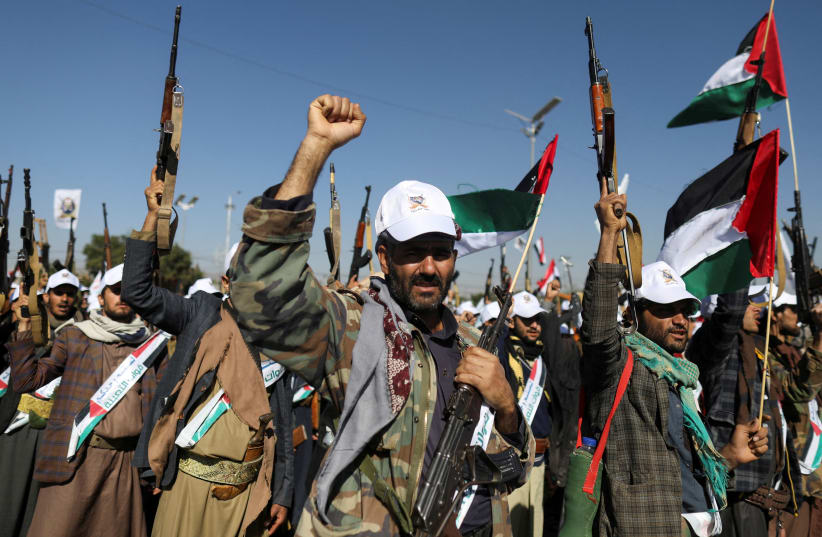
Houthi leader Abdul-Malik al-Houthi announced on Thursday that the group had carried out 96 missile and drone attacks over the past five months, targeting 61 ships in the Red Sea and the Persian Gulf.
The Houthis also confirmed that they had introduced submarine warfare into their operations, reflecting the development of their military capabilities and raising international concerns.
In context: After the war between Israel and Hamas broke out last October, the Houthis launched a series of missiles and drones toward Israeli cities. In November 2023, the Houthis began hijacking and targeting commercial ships that they claimed had connections to Israeli entities and individuals.
In mid-February, the Houthis attacked the Rubymar cargo ship in the Bab-el-Mandeb strait, sinking the ship and causing it to release the 41,000 tons of hazardous fertilizers it had been transporting.
The United States Central Command called the event an “environmental disaster.” Separately, a Houthi missile attack on the cargo ship True Confidence last week killed three sailors—the first civilian deaths since the Houthis began these attacks—injured others, and subsequently sank the cargo ship.
Go to the full article >>Hamas says Israel to blame for lack of hostage deal as Ramadan begins
Israel has insisted that it must be allowed to complete its campaign to destroy Hamas and that in the aftermath of the war, the IDF must retain security control of the enclave.
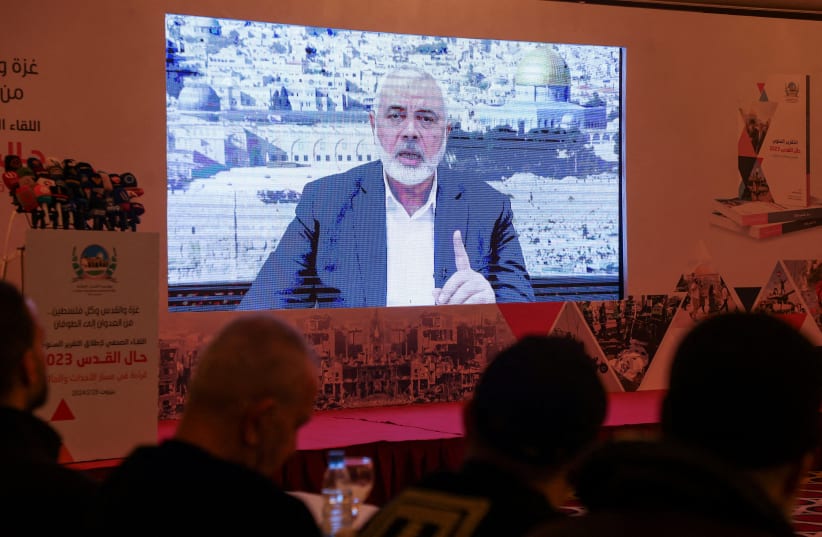
Hamas leader Ismail Haniyeh blamed Israel for failing to adhere to its demands for a hostage deal, as the holy month of Ramadan opened Sunday night without the much sought-after pause to the Gaza war.
“I tell you very clearly that the one who bears responsibility for not reaching an agreement is the occupation and the government of the Zionist enemy,” said Haniyeh, who is based in Qatar.
In a televised address, Haniyeh said that Israel does not “want to adhere to the basic principles of the agreement. However, I say that we are open to continuing negotiations, open to any formulas that achieve these principles and end this aggression.”
Calling for a permanent ceasefire in exchange for hostages
He stressed, however, that any agreement for the release of the remaining 134 hostages must include a permanent end to the Gaza war, the full IDF withdrawal from Gaza, and the return of the displaced Palestinians to their homes in the northern part of the enclave.
Israel has insisted that it must be allowed to complete its campaign to destroy Hamas and that in the aftermath of the war, the IDF must retain security control of the enclave to prevent the return of terror groups.
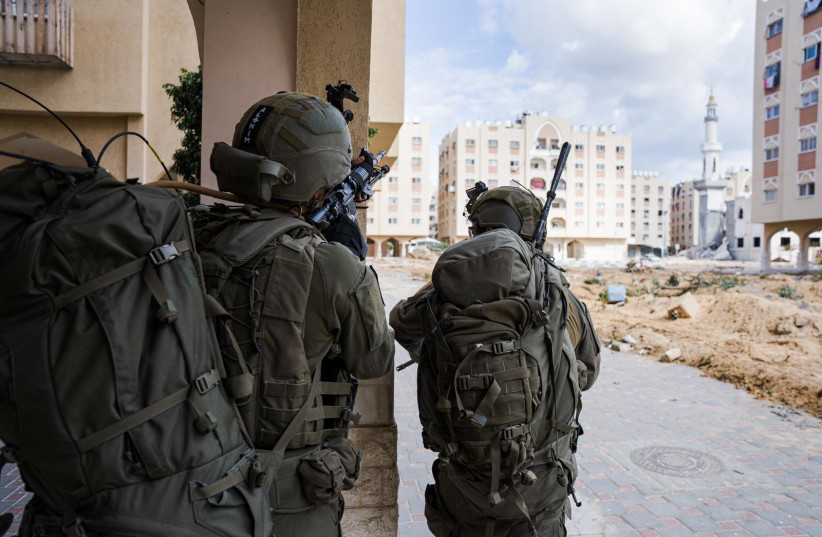
Diplomatic source to Post: Gaza maritime route was Netanyahu’s idea - exclusive
According to the source, on October 22, two weeks following the war's outbreak, Netanyahu discussed with President Biden the concept of "delivering humanitarian aid to Gaza via the sea"
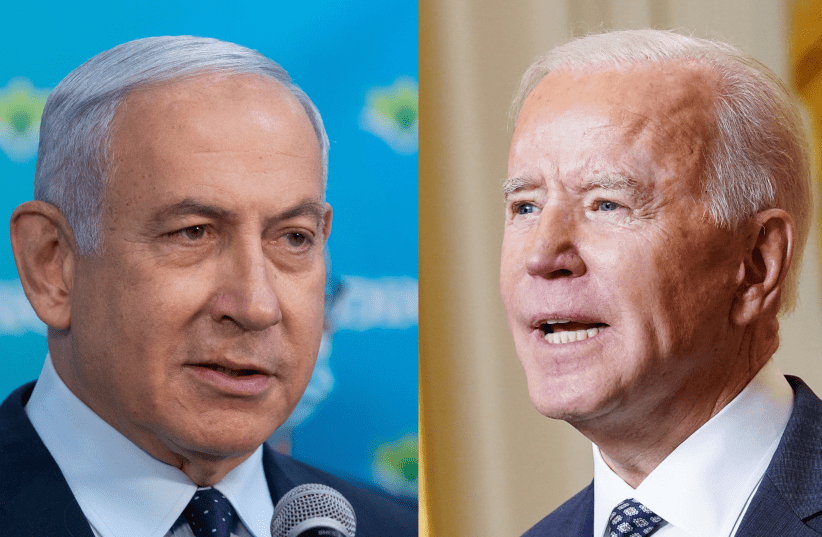
The plan for a maritime route to Gaza via Cyprus to provide humanitarian assistance for Palestinians was initiated by Prime Minister Benjamin Netanyahu in collaboration with US President Joe Biden, a senior diplomatic source told The Jerusalem Post on Sunday night.
"Netanyahu took the initiative to establish maritime humanitarian aid for the civilian population in the Gaza Strip, in collaboration with the Biden administration,” the source stated.
According to the source, on October 22, two weeks following the war's outbreak, Netanyahu discussed with President Biden the concept of "delivering humanitarian aid to Gaza via the sea, contingent on an Israeli inspection in Cyprus."
A pre-outlined strategy
"Then, on October 31, Prime Minister Netanyahu outlined this strategy to Cypriot President [Nikos] Christodoulides," the source added.
In addition, "The matter was revisited on January 19 during a dialogue between Prime Minister Netanyahu and the President of the United States, where Netanyahu proposed, according to the source, "I want to suggest setting up a team to explore maritime supply through Cyprus, after a thorough inspection of all goods.”
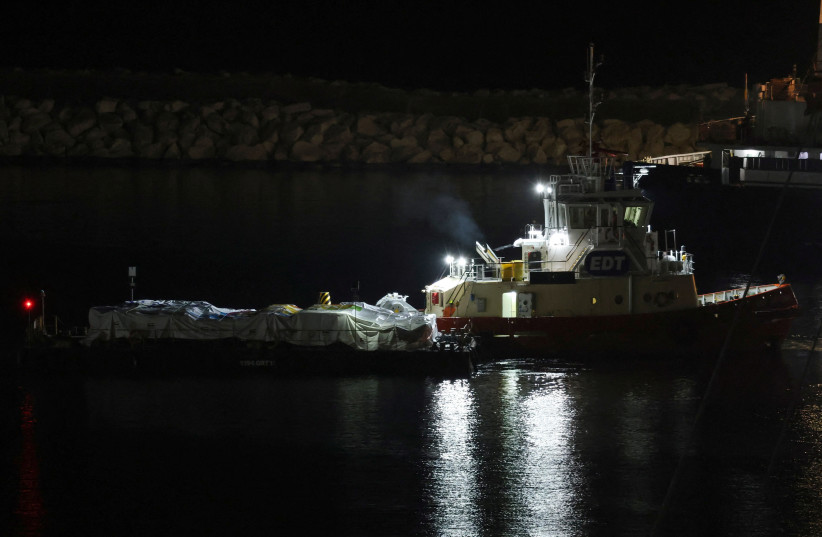
This source, close to the Prime Minister, insinuated that Biden was simply implementing a plan by Netanyahu, not actually initiating anything new.
The source spoke with The Jerusalem Post at a time of heightened diplomatic tensions between Biden and Netanyahu, as the US President has sought to distance himself from the Israeli Prime Minister as part of the 2024 re-election campaign.
Biden made headlines at his State of the Union address to Congress last Thursday when he announced that the US military planned to build an emergency temporary port off the Gaza coastline to help facilitate the entry of humanitarian aid into Gaza.
He made the statement in light of the hunger crisis in Gaza and to underscore the US commitment to helping the Palestinian people during Israel’s military campaign to destroy Hamas.
The move was also viewed as a criticism of Netanyahu by the United States, with Biden stating in his speech on Thursday that Israel could and should do more to help Palestinians in Gaza.
Years before the Gaza war, Israel Katz, now the Foreign Minister, had drawn up plans for a maritime route via Cyprus involving a floating island.
The project was never executed. But he revived it after the war began on October 7.
One of the complicating factors with a maritime route was the absence of a port in Gaza big enough to handle cargo ships.
Israel has welcomed Biden's announcement of a military operation to build a temporary port.
Defense Minister Yoav Gallant, together with the Navy Commander, the head of COGAT, Military Secretary and Commander of the Navy’s Ashdod Arena were briefed Sunday on the work needed to establish a naval pier and routes that will enable the distribution of aid to civilians.
Go to the full article >>Israel-Hamas War: What you need to know
- Hamas launched a massive attack on October 7, with thousands of terrorists infiltrating from the Gaza border and taking some 240 hostages into Gaza
- Over 1,200 Israelis and foreign nationals were murdered, including over 350 in the Re'im music festival and hundreds of Israeli civilians across Gaza border communities
- 134 hostages remain in Gaza, 33 of which killed in captivity, IDF says